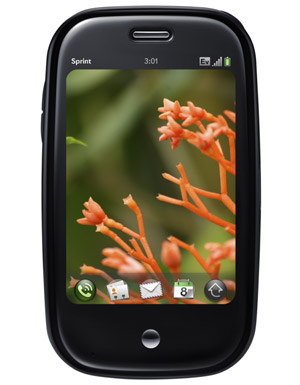Is the Palm Pre a failure?


Town Hall Investment Research analyst David Eller wrote in a research note this morning that sales of the Pre "are continuing to slow," and "likely will come in dramatically below" Sprint's supposed target of 1 to 1.5 million customers for the year, writes Barron's Eric Savitz.
Eller estimates the company selling 416,000 units in the August quarter overall, down from a previous estimate of 488,000, Savitz writes.
For the November quarter, Eller said he expects the company to ship 785,000 units.
Why the drop? Eller writes that it's not so much what Palm accomplished (plenty) so much as its "overly ambitious expectations in the face of a weak retail spending environment, competition from the iPhone 3Gs” and the inability for Palm's App Catalog to thrive in the shadow of Apple's App Store.
Missing these targets means that Palm, despite its innovations with the Palm hardware and webOS operating system, is less desirable as a company to acquire.
WebOS is “good but not mature enough for developers,” Eller writes.
Eller also estimates that the Pre has also faced strong competition from Research In Motion's BlackBerry Tour.
My takeaways from Eller's note:
- Palm swung mightily with an all-new handset, innovative OS and cunning press strategy, but Apple and RIM are too dominant in the consumer and business markets, respectively, to make significant headway. (On RIM's part, ceaseless price cuts widen the gap further.)
- Nor has Pre satisfied business users enough to make the switch from BlackBerry anyway.
- Sprint's not popular enough to ensure wide enough distribution to woo users to switch carriers.
- Worse, Palm put all its developmental eggs in one basket with the Pre. It's hard to have mature development for a single device and OS used by an extreme minority of users.
- That said, Palm needs to get more handsets running webOS in people's hands. At this point, it's competing with Android, not Apple.
- Anecdotal evidence: I've seen a ridiculous number of iPhones and BlackBerrys on the New York City subway system, but not once have I seen a Palm Pre, and very rarely an Android phone.
Eller reiterated rumors that Palm will start shipping a second webOS-based phone, known as the Pixie or EOS, in November, for less than the Pre. Eller believes the cheaper handset may be more successful at its lower price point than the Pre.
I'm not so sure. To me, this isn't "if you build it, they will come." When users are locked into contracts on competing carriers, they require a big reason to switch. Unless the Pixie takes a page from the BlackBerry Curve playbook -- that is, a version on each carrier -- I don't see this helping things remarkably.
After all, Palm Centro users have been waiting for a replacement anyway.
Yet has Palm failed? I would argue no. The company's done a fantastic job of getting its name back in people's heads, re-associating it with innovation and piquing interest.
Is the Pre a failure, then? That depends on what Palm's original plans were. If company executives (naively) planned to dethrone the iPhone, absolutely.
But if the Pre was intended to be the first flare in the smartphone war, Palm will do just fine. (As long as it convinces the press and public that was always the case.)
To gain footing, Palm needs to get webOS in more people's hands -- fast. (Sprint, I suggest holiday price cuts. Move those units!)
Nevermind the hardware.
Related on ZDNet: